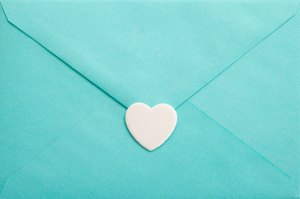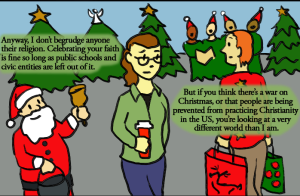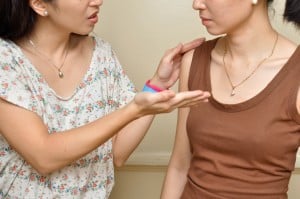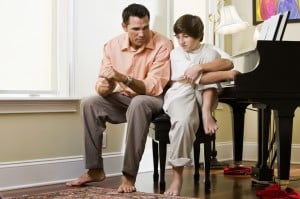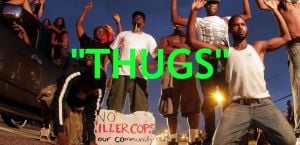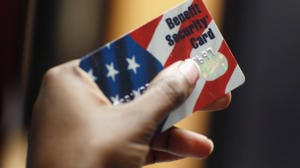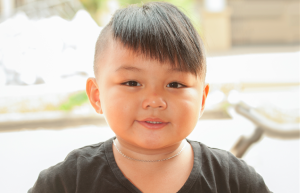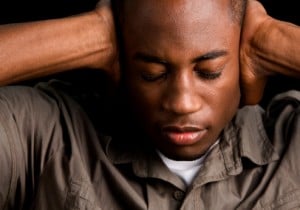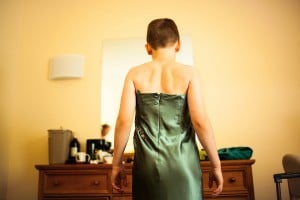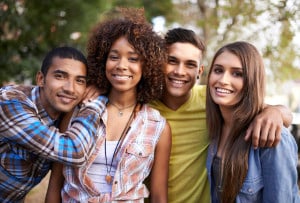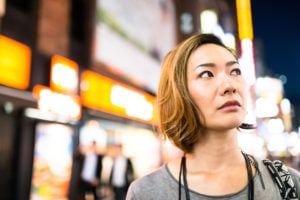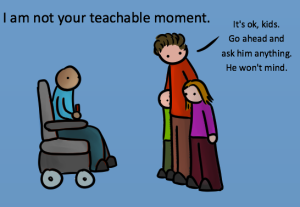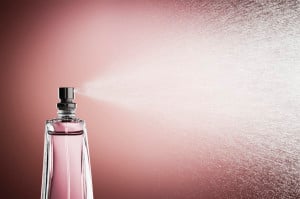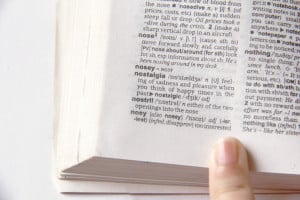(Content Warning: sexual violence)
Dear Two Spirit and Native LGBTQIA+ Survivors of Corrective Rape,
I am not a stranger to violence.
As a queer kanaka maoli woman, it sometimes feels like violence is the birthright the world has chosen for me – not only the physical, sexual, emotional, and spiritual violence I have faced in my own life, but also the untold violence inflicted on my ancestors as a result of colonization.
If you’re queer and Native, you probably also know and are intimately acquainted with the way this violence settles in our bones and weaves its way into the fabric of our daily lives.
I am not a stranger to violence, but when two White men targeted and raped me because they wanted to “turn me straight,” I was lost. I had been sexually abused as a child and had been sexually assaulted several times prior to this particular rape, but the coping mechanisms I’d used in the past failed me.
I felt the impact differently; the knowledge that these men had watched me, perceived (or assumed) my queerness, and hated it enough to attack and violate me scattered the pieces of the life I’d built for myself.
But what made things even harder was that there was no one who could relate to what I’d experienced. No one in my immediate community identified (at least publicly) as a survivor of corrective rape, and there certainly weren’t any Native folks speaking out about surviving it.
Even when I went on the Internet, a space I normally relied on for community and support, no one was really talking about corrective rape in the way I had experienced it.
The closest thing I could find were some articles on corrective rape in countries other than the US, all written with the tone that corrective rape was something that only happened in far-away places.
There was no one I could talk to, either in person or digitally, who could process with me or even just sit there with me and get it without my having to try to help them understand.
And that’s why I’m writing this letter to you. Because you are not the only person this has happened to, and I want you to know that you don’t have to do this alone.
In the process of figuring out what it means to live in the aftermath of corrective rape, I’ve found (and been found by) some truly beautiful people who have gifted me the space to sit with my pain and begin to contemplate what it would mean to heal.
I want to share some of the reflections that have come from that space with you now, because they’re things that I really wish someone could have told me when I was struggling to find community and support.
1. You Didn’t Do Anything to Deserve This
I can’t say this enough: What happened is not your fault.
It doesn’t matter if you were walking around in your most fabulous gender-bending outfit with queer tattooed on your forehead, your queerness or Two Spiritedness is not to blame for what happened.
The responsibility for your assault lies with the person(s) who assaulted you. I know it can be tough to sit with this one. Hell, I second-guessed the crap out of my identities and how they had factored into my rape.
If I had been more femininely presenting that day, would they still have targeted me? Was there something about my queerness that acted as a beacon to them, inviting the attack? If I wasn’t queer, would I never have been raped?
These questions ate away at me for a long time, and they still shape how I navigate being queer today.
But what I ultimately realized was that torturing myself with those questions was getting me nowhere.
I will never know the answer to them, but what I do know is that sexual violence is not about sexual gratification, it’s about power and control. Those men were seeking to exercise power and control over me, and they could easily have still chosen to assault me no matter what the answers to my questions were.
If you find yourself struggling with questions about whether you did something to deserve what happened, it’s okay to wrestle with them and think about them and process them.
But be gentle with yourself as you do, and remember that at the end of the day, it’s not your fault.
2. Corrective Rape Does Happen in the US
After I was raped by those men, I honestly didn’t have language to describe what had happened.
I knew from comments that they made that they had targeted me specifically due to how they perceived my sexual orientation and gender, but I didn’t know that there was a phrase that specifically described that.
It was only when I was Googling, mashing together combinations of words related to queerness and rape, that I stumbled across the term corrective rape.
Corrective rape can be defined more formally as a hate crime in which someone is raped because of their perceived sexual orientation or gender identity. The rape often takes place with the intention of forcing the individual to conform to societal expectations (that is, to be heterosexual and to conform to binary gender norms).
I recognized my experience when I read that definition, but I still wasn’t sure if I could name my assault as corrective rape. Why? Because as I mentioned earlier, the only time I saw the term used was in articles talking about corrective rape in other countries.
This was four years ago, but even today if you Google “corrective rape,” you come up with a slew of results about corrective rape in South Africa, corrective rape in Peru, corrective rape in India, and corrective rape basically anywhere that is not the US.
In spite of what the Google results might tell you, corrective rape does happen in the US, and if you feel like what happened to you was corrective rape, then you have the right to call it that regardless of where you live.
3. However You Respond Is Valid
Just like with other forms of sexual violence, there is not one right way to react to corrective rape.
For example, I never reported what happened because the town it happened in was not one I was familiar with, I wasn’t sure if their law enforcement was queer-friendly (hell, for all I knew my perpetrators might be law enforcement), and I was concerned about having to be publicly outed in the course of an investigation. Other folks might decide that they want to report what happened, and that’s a valid option, too.
One isn’t better or worse than the other – it’s about doing what’s best for you and what you’re comfortable with.
Other considerations I thought about in the aftermath included the decision to seek healthcare. Would they believe what happened? Would they force me to report? Was the staff educated and aware of the LGBTQIA+ and Two Spirit community? Would I be physically okay if I didn’t receive medical attention?
On top of those types of questions, I also wondered what the odds were of finding a healthcare worker or therapist or law enforcement officer who was Native and would have some context for understanding the convergence of my identities.
I made my choices based on what I felt I was capable of handling (which ended up being a “no” to basically anything that required other people), and however you decide to respond to your assault should be respected and supported.
4. Corrective Rape Is a Symptom of Colonization
It took me a long time to figure out exactly how what happened to me was linked to larger systems of oppression.
I understood that sexual assault was a form of oppression, and that corrective rape was obviously also a symptom of oppressive systems, but there are some complex connections there that I struggled to make.
When I began this letter, I mentioned how for Native folks, especially queer and Two Spirit folks, violence is a constant companion in our lives. This is not an exaggeration.
Colonization, or the experiences of Indigenous communities after Europeans arrived, has wreaked violent havoc on us. One of the ways that violence manifested historically was through forcing Native folks to adopt Western/European models of gender and sexuality.
It’s well documented that many of our communities had multiple genders, and sexuality was not always limited to the strict heterosexuality that colonizers brought with them.
The clash between tribal belief systems and colonizers resulted in concerted, intentional violence targeting Two Spirit folks with the goal of forcing all Native peoples to conform to the gender binary and heterosexuality.
The violence was brutal. There are paintings of colonizers setting packs of dogs on Two Spirit folks and letting them be torn apart alive in punishment for their identity.
Over the years, heterosexism and binary genders have become the accepted norm in the US, and the US government has tried hard to force Native folks to convert to Christianity and replicate the homophobia and transphobia that is rampant in the rest of society.
So how is this relevant to corrective rape?
It’s only through colonization that being LGBTQIA+ and Two Spirit came to be regarded as a sin, as something dirty, or as something to be punished.
Perpetrators of corrective rape have bought into the colonial narrative that being LGBTQIA+ or Two Spirit is deserving of violence, to say nothing of the fact that sexual violence was not tolerated in our communities to begin with pre-contact.
Corrective rape is the direct result of colonization – but the US does everything in its power to ignore that reality.
The US isn’t the only country where colonization has resulted in corrective rape, either. All of the countries that pop up when you Google corrective rape – South Africa, India, Peru, and more – have all experienced (and are still experiencing) colonization.
It is the Indigenous people there who are often most impacted by corrective rape that has begun happening following hundreds of years of intense proselytizing by missionaries. But to hear the US tell it, corrective rape only occurs because the country and its citizens are not as progressive.
In reality, the US is not immune, and corrective rape remains a dangerous legacy of colonization.
What happened to you is not a fluke – and don’t let anyone try to convince you otherwise.
Corrective rape is not simply a random act of violence committed by dangerous individuals. It’s part of an oppressive system built on the bones of our Native LGBTQIA+ and Two Spirit ancestors.
***
I’m going to be honest with you. Even knowing all of that and having had several years to process things, there are still days that I struggle. I still have scars- both literal and figurative- from what happened.
Corrective rape is something that people try very hard to maintain silence around, and it can be isolating, making it feel impossible to find support.
Even making the decision to write you this letter was terrifying, because I don’t know how people might respond to me breaking the silence.
But that fear is exactly why I decided to write this.
Because you shouldn’t have to be afraid of how people will respond if you share your story.
Because your experience is valid, and what happened is not your fault.
Because you aren’t the only LGBTQIA+ or Two Spirit person to experience corrective rape, no matter what the news wants you to believe.
Because I want you to know that you are loved, that you did not deserve what happened to you, and that I am firmly in your corner for whatever you need.
I know that it’s hard to find support amidst the epidemic of silence, so do what you can when you are able. Ceremony, songs, talking to elders and other safe people in the community, and connecting to other folks who share your identities (whether in person or online) can all be ways of receiving the support you want.
Trust that no matter what you’ve gone through, you are worthy of the love and time and energy of family, friends, and community – however you define those.
You are not alone.
Me ke aloha,
Mahealani
[do_widget id=’text-101′]
Mahealani Joy is a Contributing Writer for Everyday Feminism and kanaka maoli queer woman currently living in the Midwest. They are involved in organizing to end sexual violence against Native women and finding ways to strengthen Indigenous communities.
Search our 3000+ articles!
Read our articles about:
Our online racial justice training
Used by hundreds of universities, non-profits, and businesses.
Click to learn more


